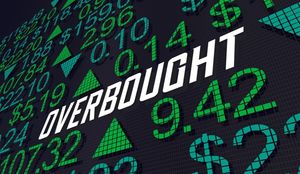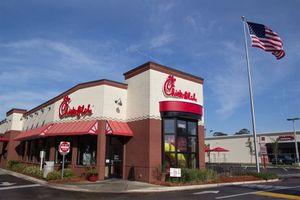
Miami, FL – October 9, 2025 – Ryder System, Inc. (NYSE: R), a global leader in supply chain, dedicated transportation, and fleet management solutions, today announced a regular quarterly cash dividend of $0.91 per share. This declaration marks a significant milestone, representing the company's 197th consecutive quarterly cash dividend, extending its remarkable streak of uninterrupted payments to more than 49 years. The consistent return of capital to shareholders underscores Ryder's robust financial health and enduring commitment to delivering long-term value.
This latest dividend, payable on December 19, 2025, to shareholders of record as of November 17, 2025, reflects a 12% increase from the previous quarterly dividend of $0.81 per share. Such a prolonged history of consistent and growing dividends is a testament to Ryder's operational resilience and strategic financial management, offering a beacon of stability in an often-volatile market.
A Legacy of Financial Prudence and Shareholder Commitment
Ryder's declaration of a $0.91 per share quarterly cash dividend is more than just a routine financial announcement; it is a reaffirmation of a deep-rooted commitment to its shareholders. The dividend, declared on October 9, 2025, with a record date of November 17, 2025, and a payment date of December 19, 2025, continues a legacy that began nearly five decades ago. This current dividend is the 197th consecutive quarterly payment, a track record that few companies can boast. InvestingPro data even suggests Ryder has maintained dividend payments for 50 consecutive years and has raised its dividend for 21 consecutive years, placing it among an elite group of dividend-growing companies.
The increase to $0.91 per share from the previous $0.81 represents a significant 12% boost, signaling management's confidence in the company's future earnings and cash flow generation. Ryder's Chairman and CEO, Robert Sanchez, has previously emphasized that the company's sustained profitability and improved returns are the bedrock for delivering annual dividends aligned with its higher earnings profile. This disciplined approach to capital allocation, prioritizing shareholder returns, has been a hallmark of Ryder's financial strategy through various economic cycles, from periods of expansion to significant downturns.
Market Implications and Corporate Beneficiaries
This consistent dividend payout, particularly the recent increase, positions Ryder (NYSE: R) favorably among income-oriented investors. For current shareholders, it translates into a tangible return on investment and a clear signal of the company's financial stability. The increased dividend payout can enhance the stock's attractiveness, potentially drawing new investors seeking reliable income streams and demonstrating a company's ability to navigate economic fluctuations while still rewarding its owners.
While Ryder itself is the primary beneficiary of this positive sentiment, the stability it projects could have ripple effects. Competitors in the logistics and transportation sector, such as XPO Logistics (NYSE: XPO) or Old Dominion Freight Line (NASDAQ: ODFL), might face increased scrutiny regarding their own shareholder return policies. Companies with less consistent dividend histories may find themselves at a disadvantage when compared to Ryder's nearly 50-year streak. Furthermore, the broader market for industrial and transportation stocks could see a boost in confidence, as Ryder's performance often serves as an indicator of economic activity. The financial services sector, including asset managers and mutual funds specializing in dividend growth or value investing, will likely take note, potentially increasing their allocations to Ryder's stock.
Broader Significance and Historical Context
Ryder's remarkable 49-year (or 50-year, by some metrics) streak of consecutive dividend payments, coupled with 21 years of dividend increases, places it in an exclusive club of financially robust companies. This track record is a powerful indicator of exceptional financial health, stable earnings, and disciplined cash flow management. In an industry often susceptible to economic cycles and fuel price volatility, Ryder's consistency speaks volumes about its diversified business model encompassing fleet management, dedicated transportation, and supply chain solutions.
This commitment to dividends aligns with broader industry trends where companies with strong balance sheets are increasingly focused on returning capital to shareholders. It signals a mature company with a proven business model capable of generating sustainable profits. Historically, companies with such long dividend histories, often referred to as "Dividend Aristocrats" or "Dividend Kings," tend to outperform the broader market during periods of uncertainty and offer a degree of stability to investment portfolios. The regulatory environment generally favors companies demonstrating such financial prudence, as it reflects responsible corporate governance. Ryder's actions set a high bar for its peers and reinforce the importance of long-term financial planning and shareholder value creation.
The Road Ahead: Opportunities and Challenges
Looking ahead, Ryder's consistent dividend policy signals a confident outlook from management. In the short term, this dividend declaration is likely to reinforce investor confidence, potentially leading to continued stability or even a modest uptick in its stock price as income-focused investors take note. The company's ability to increase its dividend by a significant margin also suggests strong underlying business performance and favorable market conditions in its core segments.
In the long term, Ryder may continue to leverage its strong financial position to pursue strategic growth initiatives, including technological advancements in fleet electrification, automation in supply chain solutions, or potential acquisitions that align with its core competencies. The consistent cash flow that supports these dividends also provides a buffer against unforeseen economic headwinds or industry disruptions. However, potential challenges include managing inflationary pressures on operational costs, navigating evolving regulatory landscapes, and adapting to the rapid pace of technological change in logistics. Investors should watch for Ryder's capital expenditure plans, its ability to maintain profit margins, and any further announcements regarding dividend growth, which will be key indicators of its ongoing financial health and strategic direction.
Wrapping Up: A Testament to Enduring Value
Ryder's declaration of its 197th consecutive quarterly cash dividend, now at $0.91 per share, is a powerful testament to the company's enduring financial strength and unwavering commitment to its shareholders. This nearly five-decade-long streak of uninterrupted payments, coupled with over two decades of dividend increases, solidifies Ryder's position as a reliable investment for those seeking consistent returns and long-term value. It underscores a business model that has proven resilient across various economic cycles and market conditions.
Moving forward, Ryder's consistent dividend policy will likely continue to attract a stable investor base, valuing both income and capital appreciation. The company's ability to sustain and grow these payouts reflects prudent management and a robust operational foundation. Investors should continue to monitor Ryder's earnings reports, cash flow statements, and any strategic announcements regarding its fleet, supply chain, and technology investments. These will provide further insights into the company's capacity to maintain its impressive dividend legacy and navigate the evolving landscape of the transportation and logistics industry in the coming months.
This content is intended for informational purposes only and is not financial advice






